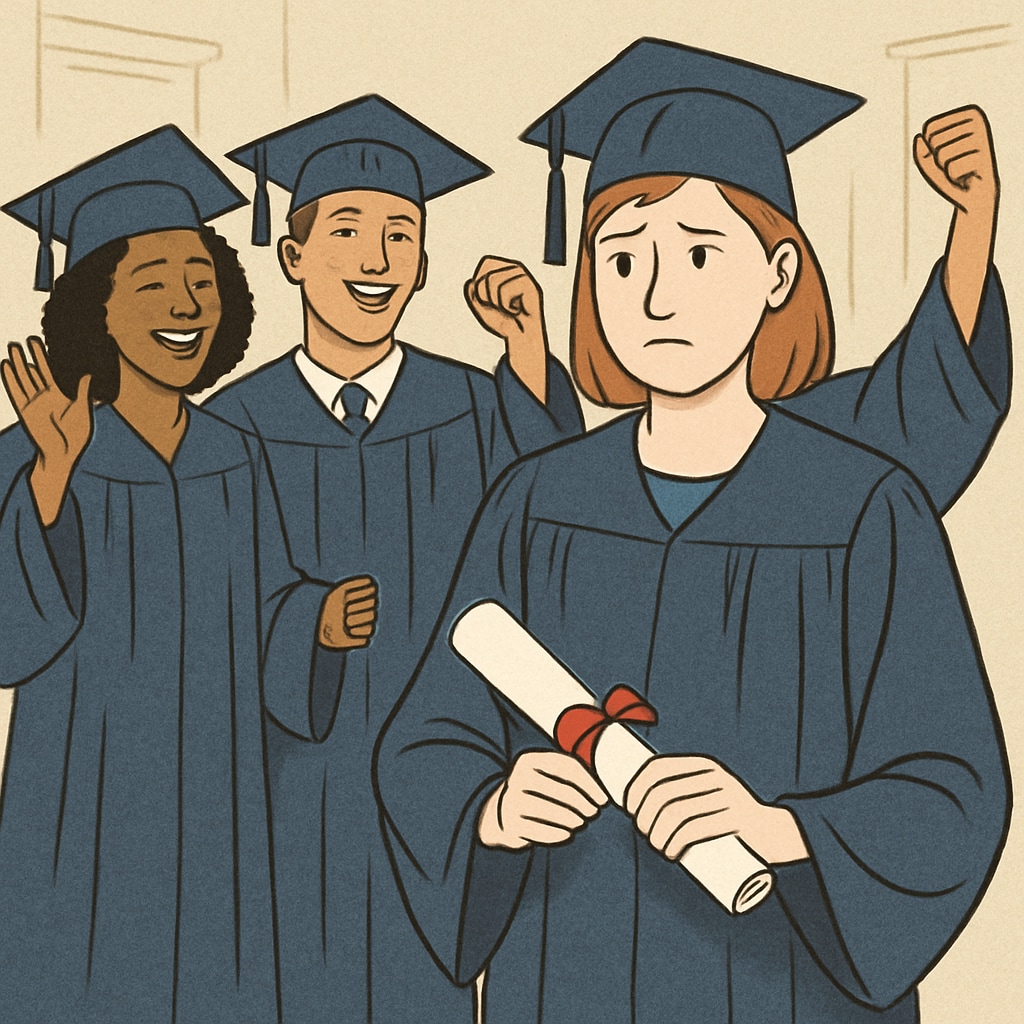For many students, the decision to pursue a modified high school diploma seems practical at first, but it can lead to regret later in life. The choice between a traditional and a modified diploma often feels overwhelming, as it significantly impacts career and academic prospects. This article delves into the reasons behind such regret, the key differences between diploma types, and the potential pathways to address these feelings and make adjustments.

Understanding the Modified High School Diploma
Modified high school diplomas are designed for students facing unique challenges, such as learning disabilities or academic difficulties, and typically come with adjusted requirements. While they provide a pathway to graduation, these diplomas may not carry the same weight as traditional ones when it comes to college admissions or job opportunities.
For example, many universities and employers prioritize applicants with traditional diplomas, as these are seen as evidence of meeting standard academic benchmarks. Modified diplomas, on the other hand, often signal accommodations or alternative curricula, which may not align with all post-secondary requirements or career fields.
According to a study highlighted by the Britannica article on education, students with non-traditional diplomas can face barriers when applying to competitive programs or roles. This reality can lead to regret when individuals feel their diploma limits their opportunities.
Common Reasons for Regret
Regret surrounding a modified high school diploma often stems from three main areas: missed opportunities, societal perceptions, and personal expectations.
- Missed opportunities: As mentioned earlier, certain colleges or career paths may require a traditional diploma, leaving modified diploma holders feeling excluded.
- Societal perceptions: Some people believe that a modified diploma reflects lower academic achievement, which can impact confidence and self-worth.
- Personal expectations: Students may later realize they were capable of meeting traditional diploma requirements but did not push themselves due to temporary challenges or lack of guidance.
These factors, combined with the long-term implications of the decision, can create a sense of frustration or self-doubt for many individuals.

Addressing Diploma Regret
If you find yourself regretting your decision to pursue a modified high school diploma, there are actionable steps to help you move forward:
- Further education: Enrolling in community college or adult education programs can help bridge the gap between a modified diploma and a traditional academic record. These institutions often have flexible admission policies, allowing you to prove your skills and pursue advanced studies.
- Career certifications: Many industries value certifications that demonstrate specific skills. For example, earning a certification in IT, healthcare, or skilled trades can provide opportunities that don’t rely on your high school diploma type.
- GED or high school equivalency: Completing a GED (General Educational Development) test or other equivalency exams can help you achieve credentials comparable to a traditional high school diploma.
- Seek guidance: Career counselors or mentors can provide personalized advice and strategies to overcome any perceived limitations of your diploma.
By taking these steps, you can regain control of your academic and professional journey.
Conversion Options: Can a Modified Diploma Be Upgraded?
In some cases, individuals may wonder if their modified diploma can be converted or upgraded to a traditional diploma. While the specific options depend on your school district and state policies, here are some possibilities:
- Post-graduation programs: Some schools offer programs that allow diploma holders to complete additional coursework to meet traditional requirements.
- Credit recovery: Online or in-person courses may help you earn the credits needed for a traditional diploma.
- GED programs: While not technically an “upgrade,” completing a GED can provide similar benefits to a traditional diploma, especially for higher education and employment.
It’s essential to research the options available in your area. For example, the GED program on Wikipedia provides detailed information about equivalency exams and their recognition worldwide.
Looking Forward: Embracing Your Path
While regret can be a powerful emotion, it’s important to remember that a modified high school diploma does not define your future. Many successful individuals have overcome educational barriers through persistence, resourcefulness, and a willingness to adapt.
Focus on your strengths, explore additional qualifications, and seek out opportunities that align with your goals. By taking proactive steps, you can turn your diploma decision into a stepping stone for personal and professional growth.
Readability guidance: This article uses concise paragraphs, clear headings, and practical lists to enhance readability. Transition words like “however,” “for example,” and “in addition” help maintain a smooth flow. The content prioritizes active voice, ensuring an engaging and accessible tone for readers.


